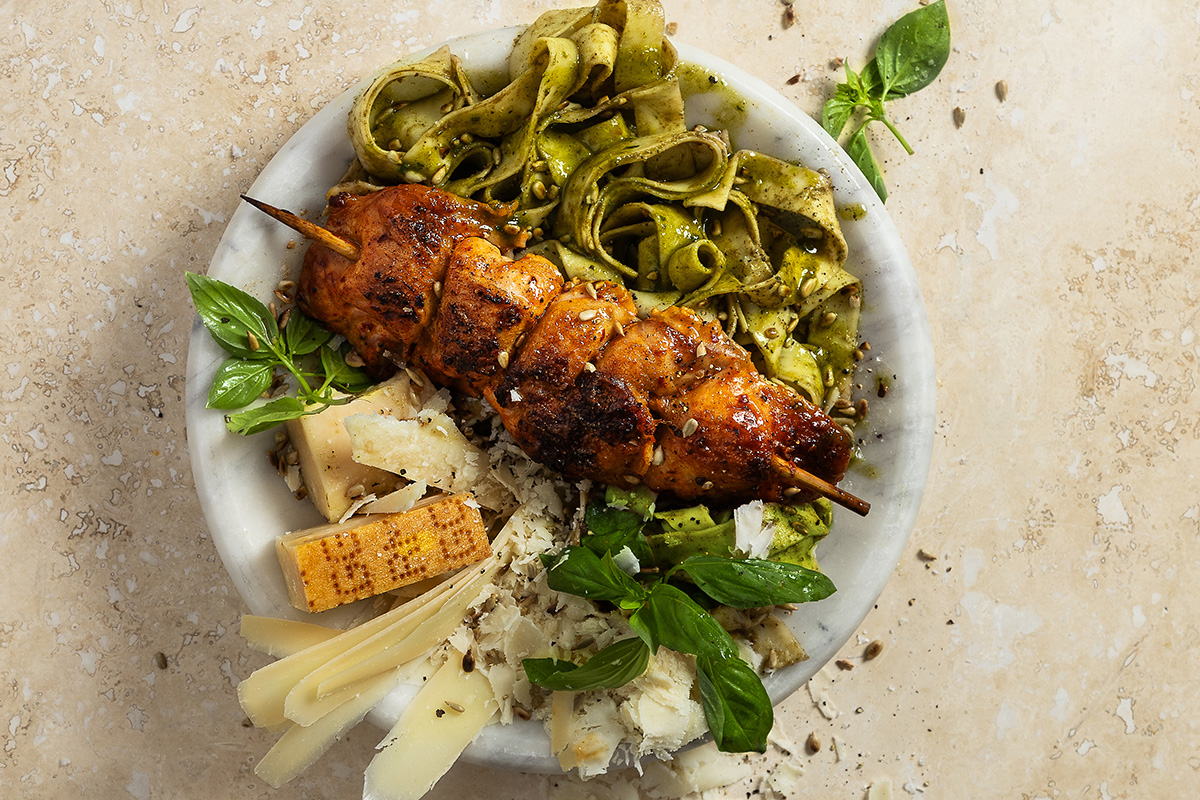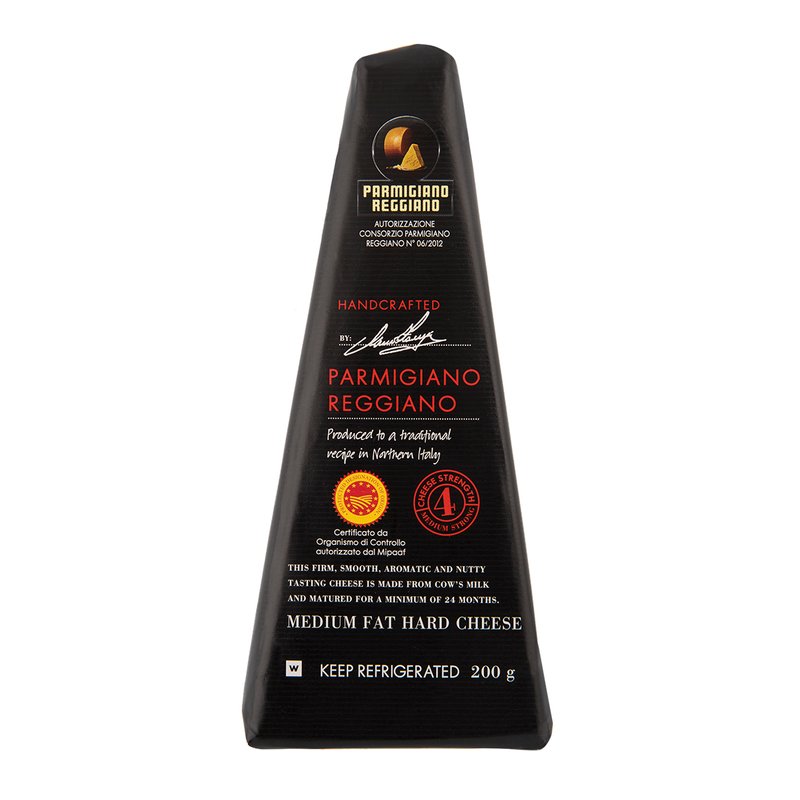2 easy weeknight dinners using Parmigiano Reggiano
Sharp, nutty and full of flavour, once you go to Parmigiano Reggiano, you’ll never go back. Here’s how we use it for quick and easy weeknight dinners that promise tons of flavour with little effort.
Advertising promotion
Parmigiano Reggiano is the undisputed MVP of hard cheeses. Wondering why it’s so delicious? It’s crafted using methods perfected over nine centuries:
- Time-honoured techniques
- Natural fermentation
- An ageing process of at least 12 months
The result? A firm, nutty cheese that transforms cheeseboards, pasta, sauces and salads. Renowned for its umami-rich flavour and granular texture, Parmigiano Reggiano is easy to identify – look for the branded rind featuring the official logo and PDO (Protected Designation of Origin) insignia, ensuring an unforgettable taste experience.
Curious about how to use Parmigiano Reggiano? Here are two must-try recipes:
1. Basil pesto pasta with garlic-Parmesan chicken
Making basil pesto from scratch is very easy. This is our budget-friendly version that uses toasted pumpkin seeds instead of pine nuts. Toss it with your favourite pasta – we've gone for flat pappardelle pasta, but fusilli will also work well. Bulk up the meal with chicken espetadas or keep it meat-free with halloumi kebabs.

2. Parmesan fried chicken
Easy for weeknight suppers but impressive enough to serve when hosting, we love how versatile this Parmesan fried chicken recipe is. Parmigiano Reggiano is used to crumb chicken breasts before they're fried until golden and crispy. You don't have to limit Parmesan-crusting to chicken; steak and pork work just as well. Add finishing touches with chilli crisp and a crunchy salad of fennel and sugar snap peas.

Find more cheese recipes here.
Photography: Shavan Rahim
Production: Brita du Plessis
Food assistant: Josh van Zyl
Masterfully made in Italy with the same passion, expertise and dedication as it was in the 12th century, Parmigiano Reggiano remains true to its heritage and taste. Artisan cheesemakers use traditional methods of production distinctive to the area of origin, to create the only authentic Parmesan cheese.




Comments